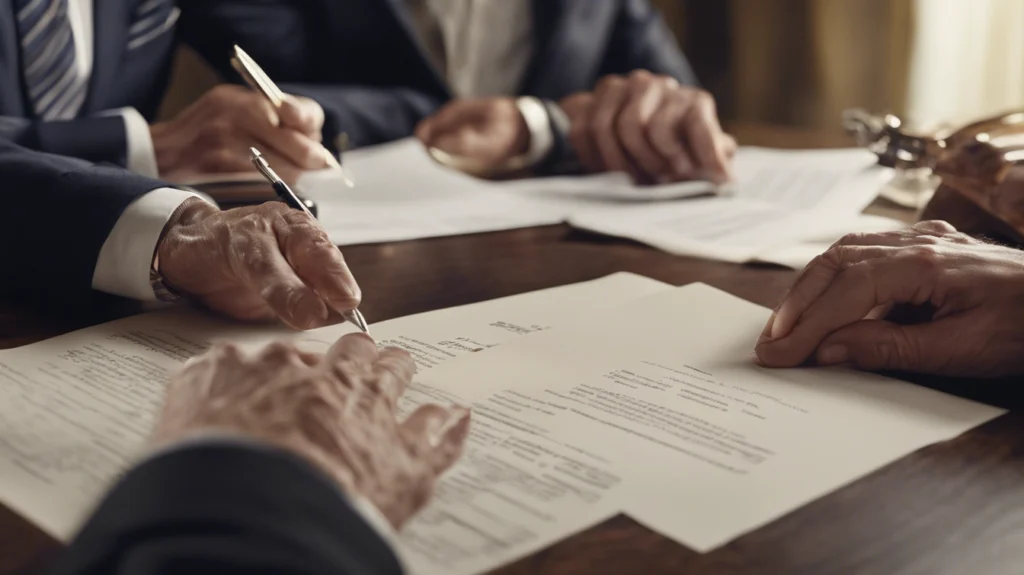How Are Trusts and Wills Different in Estate Planning in New York?
At Morgan Legal Group, located in New York City, we specialize in estate planning, probate, guardianship, elder law, wills, and trusts. Understanding the differences between trusts and wills is essential for effective estate planning. Each serves distinct purposes and offers unique benefits, and knowing when to use each can ensure that your assets are managed and distributed according to your wishes. This comprehensive guide will explore the differences between trusts and wills in estate planning under New York State law, helping you make informed decisions.
Understanding Wills
A will, also known as a last will and testament, is a legal document that outlines how your assets should be distributed after your death. It allows you to specify your beneficiaries, appoint an executor to manage your estate and designate guardians for minor children.
Key Components of a Will
A well-drafted will typically includes the following components:
- Executor: The person you designate to manage your estate, pay debts and taxes, and distribute your assets according to your wishes.
- Beneficiaries: The individuals or organizations you designate to receive your assets.
- Guardianship: If you have minor children, a will allows you to appoint guardians to care for them.
- Specific Bequests: You can specify particular items or amounts of money to be given to certain beneficiaries.
- Residuary Clause: This clause addresses any remaining assets not specifically mentioned in the will, ensuring they are distributed according to your overall wishes.
Advantages of Wills
Wills offer several advantages in estate planning:
- Clarity and Simplicity: Wills provide clear instructions on distributing your assets, making the process straightforward for your heirs and the court.
- Guardianship Designations: Wills are the only legal documents that allow you to appoint guardians for your minor children.
- Flexibility: Wills can be easily updated and amended to reflect changes in your circumstances or wishes.
Understanding Trusts
A trust is a legal arrangement where one party (the trustee) holds and manages assets for the benefit of another party (the beneficiary). Trusts can be created during your lifetime (living trusts) or upon your death (testamentary trusts).
Key Components of a Trust
A well-drafted trust typically includes the following components:
- Grantor: The person who creates the trust and transfers assets into it.
- Trustee: The person or institution responsible for managing the trust assets according to the terms of the trust.
- Beneficiaries: The individuals or organizations that will benefit from the trust assets.
- Terms of the Trust: The specific instructions on how the trust assets should be managed and distributed.
Advantages of Trusts
Trusts offer several advantages in estate planning:
- Probate Avoidance: Assets in a trust bypass the probate process, allowing for faster and more private distribution to beneficiaries.
- Asset Protection: Trusts can protect assets from creditors and legal claims, ensuring they are preserved for beneficiaries.
- Control and Flexibility: Trusts allow for detailed asset management and distribution instructions, including conditions and timelines.
- Tax Benefits: Certain types of trusts can provide tax advantages, helping to minimize estate taxes and other liabilities.
Comparing Trusts and Wills
While both trusts and wills are essential tools in estate planning, they serve different purposes and offer unique benefits. Understanding these differences can help you determine which option is best suited for your needs.
Probate Process
Wills: Wills must go through the probate process, which involves court supervision to validate the will, settle debts, and distribute assets. This process can be time-consuming and public.
Trusts: Trusts generally avoid the probate process, allowing for faster and more private distribution of assets to beneficiaries.
Control and Flexibility
Wills: Wills provide clear instructions for asset distribution but offer limited control over how and when assets are distributed after death.
Trusts: Trusts offer greater control and flexibility, allowing you to specify detailed instructions and conditions for asset management and distribution.
Guardianship
Wills: Wills are the only documents that allow you to designate guardians for your minor children.
Trusts: Trusts do not address guardianship issues; these must be handled separately in a will.
Privacy
Wills: The probate process is a public proceeding, meaning that the details of your will and estate can become public records.
Trusts: Trusts are private documents, and the details of the trust and its assets generally remain confidential.
Tax Considerations
Wills: Wills do not provide any special tax benefits and, depending on the size of the estate, may result in higher estate taxes.
Trusts: Certain types of trusts can offer tax advantages, helping to minimize estate taxes and other liabilities.
Choosing Between a Trust and a Will
Whether to use a trust, a will or both depends on your specific circumstances and estate planning goals. Here are some factors to consider:
- Size and Complexity of Your Estate: Trusts may offer flexibility and control to larger and more complex estates.
- Privacy Concerns: If privacy is a significant concern, trusts can help keep the details of your estate confidential.
- Probate Avoidance: If avoiding probate is a priority, trusts are the better option.
- Guardianship: If you have minor children, a will is necessary to designate guardians.
- Tax Planning: Trusts can offer tax benefits that will do not, making them advantageous for larger estates.
How Morgan Legal Group Can Help
At Morgan Legal Group, we are dedicated to providing personalized and comprehensive estate planning services tailored to your unique needs and circumstances. Our experienced attorneys can help you understand the differences between trusts and wills, and determine the best approach for your estate planning under New York State law.
Expert Guidance
Our team of experienced attorneys has a deep understanding of New York State estate planning laws and a proven track record of success. We provide expert guidance to help you navigate the complexities of estate planning and make informed decisions.
Personalized Service
We take the time to understand your goals and develop a customized estate plan that meets your needs. Our personalized approach ensures that your plan reflects your wishes and protects your interests.
Comprehensive Legal Solutions
From drafting wills and trusts to managing probate and guardianship matters, we offer a wide range of services to address all aspects of estate planning. Our goal is to provide you with a seamless and stress-free experience.
Contact Us
If you are in need of estate planning services, contact Morgan Legal Group today. Our experienced attorneys are here to provide you with the expert legal assistance you need. Schedule a consultation with us and take the first step towards securing your future and protecting your loved ones under New York State law.
Frequently Asked Questions
What is the difference between a will and a trust?
A will is a legal document that outlines how your assets should be distributed after your death and can designate guardians for minor children. A trust is a legal arrangement where one party holds and manages assets for the benefit of another, allowing for more control and flexibility in asset distribution and probate avoidance.
Do I need both a will and a trust?
Depending on your circumstances, you may benefit from having both a will and a trust. A will is necessary to appoint guardians for minor children, while a trust can provide greater control, privacy, and probate avoidance for asset distribution.
How can I avoid probate in New York?
Creating trust is one of the most effective ways to avoid probate in New York. Assets held in a trust bypass the probate process, allowing for faster and more private distribution to beneficiaries.
Can I change my will or trust after it is created?
Yes, both wills and revocable trusts can be modified or revoked during your lifetime. It’s important to review and update your estate planning documents regularly to reflect changes in your circumstances or wishes.
What are the tax benefits of creating a trust?
Certain types of trusts can provide tax advantages, such as minimizing estate taxes and other liabilities. An estate planning attorney can help you determine the best trust structure to achieve your tax planning goals.









